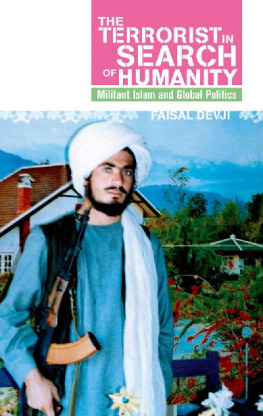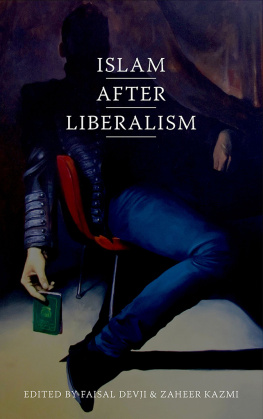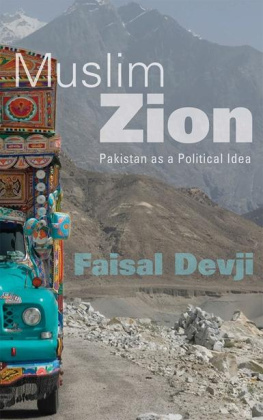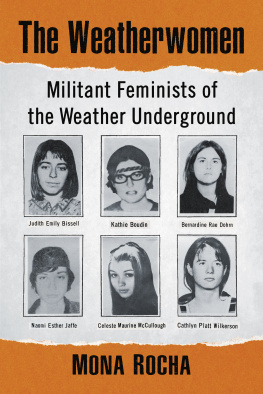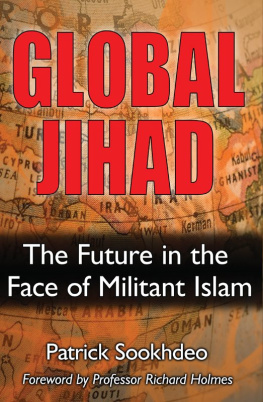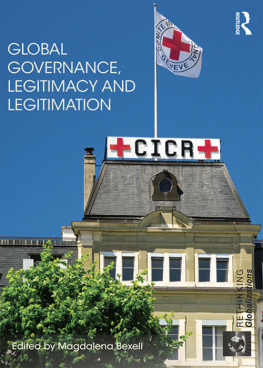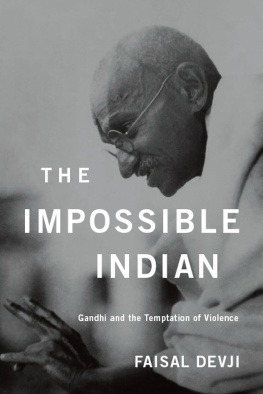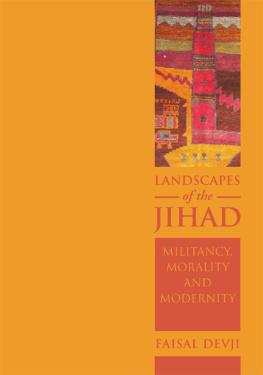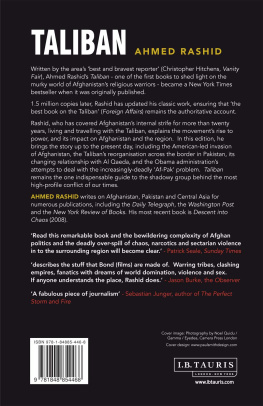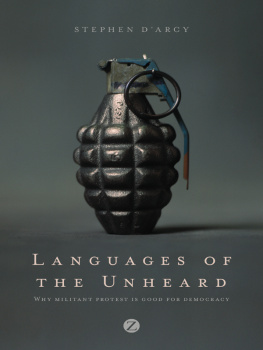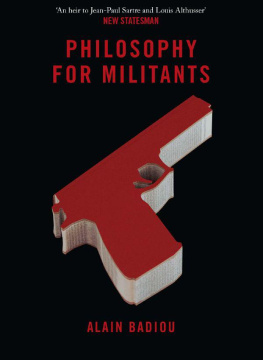THE TERRORIST IN SEARCH OF HUMANITY
Crises in World Politics
(Centre of International Studies, University of Cambridge)
TARAK BARKAWI JAMES MAYALL BRENDAN SIMMS
editors
GRARD PRUNIER
Darfurthe Ambiguous Genocide
MARK ETHERINGTON
Revolt on the Tigris
FAISAL DEVJI
Landscapes of the Jihad
AHMED HASHIM
Insurgency and Counter-Insurgency in Iraq
ERIC HERRING & GLEN RANGWALA
Iraq in Fragmentsthe Occupation and its Legacy
STEVE TATHAM
Losing Arab Hearts and Minds
WILLIAM MALEY
Rescuing Afghanistan
IAIN KING AND WHIT MASON
Peace at any Price: How the World Failed Kosovo
CARNE ROSS
Independent Diplomat
FAISAL DEVJI
The Terrorist
in Search of Humanity
Militant Islam and Global Politics
Oxford University Press is a department of the University of Oxford. It furthers the Universitys objective of excellence in research, scholarship, and education by publishing worldwide. Oxford is a registered trade mark of Oxford University Press in the UK and certain other countries.
Published in the United States of America by Oxford University Press 198 Madison Avenue, New York, NY 10016, United States of America.
Faisal Devji, 2019
All rights reserved. No part of this publication may be reproduced, stored in a retrieval system, or transmitted, in any form or by any means, without the prior permission in writing of Oxford University Press, or as expressly permitted by law, by license, or under terms agreed with the appropriate reproduction rights organization. Inquiries concerning reproduction outside the scope of the above should be sent to the Rights Department, Oxford University Press, at the address above.
You must not circulate this work in any other form and you must impose this same condition on any acquirer.
Library of Congress Cataloging-in-Publication Data
Names: Faisal Devji
Title: The Terrorist in Search of Humanity: Militant Islam and Global Politics
ISBN 9780190076801 (print)
ISBN 9780197524114 (epub)
ISBN 9780197524107 (epdf)
CONTENTS
Amidst the wilds of Tartary and Russia, although he still evaded me, I have ever followed in his track. Sometimes the peasants, scared by this horrid apparition, informed me of his path; sometimes he himself, who feared that if I lost all trace I should despair and die, often left some mark to guide me. The snows descended on my head, and I saw the print of his huge step on the white plain.
Mary Shelley, Frankenstein; or, The Modern Prometheus
This book could not have been written without the advice and assistance of numerous friends and colleagues. I want to thank Arjun Appadurai and Carol Breckenridge in New York for their unfailing support; Michael and Rachel Dwyer in London for the quality of their understanding and the constancy of their hospitality; and Christophe Carvalho for once again giving me the time and space to write in Mumbai. This book is in substantial ways a product of the many conversations Ive enjoyed with friends old and new. And it is for the pleasure of their company as much as for their arguments and insights that I want to thank Shane Brighton, Jean Comaroff, Nick Frayn, Meenakshi Ganguly, Thomas Keenan, Naveeda Khan, Mark Lacy, Uday Mehta, Satya Pemmaraju, Omar Qureshi, Vyjayanthi Rao, Sudipta Sen, Thorvald Sirnes and Neguin Yavari. I am also grateful to the Christian Michelsen Institute in Bergen, and especially to Kari Telle, for allowing me to revise my manuscript in the most beautiful location imaginable. This volume was written in association with the project on Comparative Ethics of War at the International Peace Research Institute Oslo (PRIO).
New York, June 2008
F.D.
Though it was an illegal practice under the Taliban, photographs continued to be taken in secret studios across Afghanistan during their rule. With the countrys invasion by coalition forces following the 9/11 attacks, many of these studios and their rolls of negatives came to light, courtesy of an enterprising German photojournalist who published the previously illicit images of ordinary Afghans and even Taliban fighters posing against elaborate backdrops. Dressed in street clothes and equipped with guns of various sorts, men and boys are depicted in such photographs standing or sitting before Swiss chalets and other pastoral settings, both European and Asian, with bunches of plastic flowers making up the rest of the dcor. One such image appears on the cover of this book. However criminal they might have been, these portraits are not in the least idiosyncratic, illustrating despite their display of firearms a set of standard poses and generic backgrounds familiar across wide swathes of South and Central Asia. Indeed the Alpine scenes so popular among the Talibans subjects are sold in glossy and outsize formats on the streets of African and Asian cities, their originals having been filmed as settings for many a Bollywood romp.
So common are these pastoral scenes that they form a significant part of militant imagery as well, especially on video and websites commemorating suicide bombers and other martyrs, whose portraits are frequently set amidst verdant landscapes and surrounded by flowers.
For the most part such armed figures manage to avoid the action-hero mannerisms popularized by Hollywood, also departing the latters ideals of masculinity by their limpid expressions and sometimes androgynously painted or retouched faces. This is the ideal not only of the Afghan men photographed in clandestine studios, but also of Al-Qaedas martyrs, who are meant to be more beautiful in death than they ever were in life. If smiling lads point pistols at each other in these photographs, or militants appear on videotape firing semi-automatic weapons, this does little to alter the curious repose that marks such images. Many of the Taliban photographs, for instance, portray gunmen clasping hands or looking into the camera with hands over their hearts in poses of humble welcome. Yet this departure from Hollywood stereotypes by no means indicates the presence of some alternative aesthetic in the wilder reaches of the Hindu Kush, since such local histories of the Muslim imagination have become globalized in the form of kitsch, which now provides a powerful medium for the transmission of militant as well as pacific ideals. Of course not all of these ideals take the form of kitsch, though each moves horizontally, connecting people separated by history, geography and language through media in the way that fashion or advertising does, and not vertically by the kind of indoctrination that requires a hierarchically controlled environment to function.
Whatever the local context of militant practices, they possess a global form facilitated by the random connectivity of technology and spectacle, whose history passes through the printing presses, studios and cinema sets of the last two centuries as much as it descends through the Quran and its commentaries. However ephemeral these connections, their consequences for militant behaviour are as significant as those of media and advertising upon consumer behaviour worldwide, itself by no means a trivial matter. Partisans of Al-Qaeda are mindful of the global form their practices take, and try hard to lend them planetary significance. But unlike communism or even fundamentalism in the past, this significance does not lie in the attempt to create an alternative model of political and economic life on a global scale, given that the moral virtues favoured by militants neither presume nor require a revolutionized society for their instantiation. Instead these men speak from within the world of their enemies and seem to possess no place outside it. Like the kitsch forms they often take, militant ideals subvert our political reality from the inside, if only by exceeding it with the violent lustre of their hyperreality. So despite the exotic appearance of its minions, it is only natural that Al-Qaeda should lack a utopia of its own.

